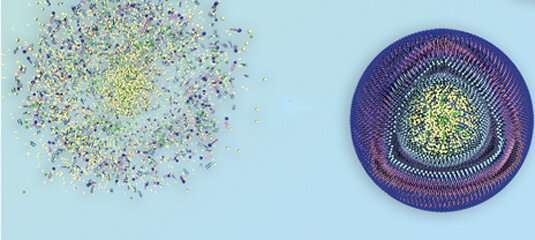Many chemotherapeutic agents used to treat cancers are
associated with side-effects of varying severity, because they are
toxic to normal cells as well as malignant tumors. This has
motivated the search for effective alternatives to the synthetic
pharmaceuticals with which most cancers are currently treated. The
use of calcium phosphate and citrate for this purpose has been
under discussion for some years now, since they lead to cell death
when delivered directly into cells, while their presence in the
circulation has little or no toxic effect. The problem consists in
finding ways to overcome the mechanisms that control the uptake of
these compounds into cells, and ensuring that the compounds act
selectively on the cells one wishes to eliminate. Researchers in
the Department of Chemistry at LMU, led by Dr. Constantin von
Schirnding, Dr. Hanna Engelke and Prof. Thomas Bein, now report the
development of a class of novel amorphous nanoparticles made up of
calcium and citrate, which are capable of breaching the barriers to
uptake, and killing tumor cells in a targeted
fashion.
Researchers develop novel nanoparticle that efficiently and
selectively kills cancer cells



